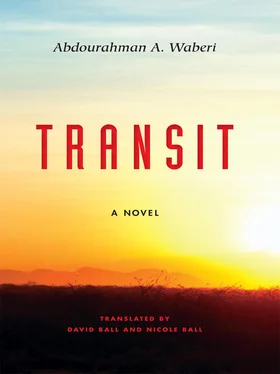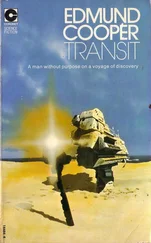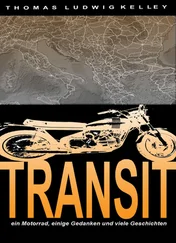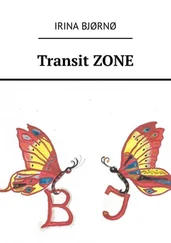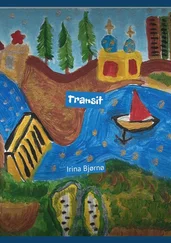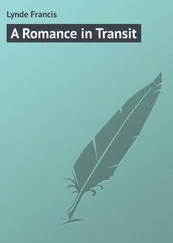Waberi has won many literary prizes and honors in France, Germany, and elsewhere. His satiric In the United States ofAfrica (in which Africa is rich and bloated, while the wretched of the earth live in war-torn Euramerica and desperately try to immigrate to a united Africa) appeared here in 2009; he received lavish praise from the major literary journals in France for his latest novel, published in 2011, Passage des larmes (Passage of Tears) , a grim dialogue of the deaf between two brothers in Djibouti, a fanatical Islamist and a North American exile who works for a private international intelligence agency. We are delighted that Indiana University Press is now publishing his second novel, Transit , one of Waberi's most important works.
David Ball
Nicole Ball
Never again will a single story be told
as though it's the only one.
— JOHN BERGER
I'M IN PARIS, warya *—pretty good, huh? OK it's not really Paris yet but Roissy. That the name of the airoport. This airoport got two names, Roissy and Charles de Gaulle. In Djibouti it got just one name, Ambouli, an I swear on the head of my departed family, it's much-much tinier. OK, this trip here, everything went all right. I gobbled the good food of Air France. Went direct to the war film before I fell into heavy sleep. I was stocked, no I mean scotched — taped — in the last row of the Boeing 747 where the cops tie the deportees up tight when the plane goes back to Africa. That's true, that the way they do it. Moussa he told me that a little while ago. Moussa, you know he can pray the good Lord sitting down without lifting his behind from the seat of the plane, believe me faithfully. He travel a lot, Moussa, helps guys discovering travel like me. He calm all the time. He talk so soft-soft you'd think he got sore tonsils. Wait, I'm gonna follow Moussa, pick up baggage. My bag blocked between two big boxes of French military, label says it: “AD 188,” I know what that is, it Air Detachment 188, navigation base right next to airoport in Ambouli as a matter of fact. I pulled the bag hard. A white lady looked at me, you know, with her eyes in the air like white marbles. I picked the bag up hard like we did with our gear when I was mobilized in the army. I put my bag on my back. I looked right-lef. I see Moussa, I walk behind him. Act dumb with the cops, Moussa he confirm it to me. Main thing, don't show you speak French. Don't mess things up, so shut your trap. Or cry, to fish pity from French people. French in France nicer than French back there, Moussa don't say that, I know by myself. I stocked the esperience. OK I don't say nothing cause Roissy's danger, they might say Africans, pains in the ass. I look right-lef again, I walk behind big Moussa. Shut up. Nod head yes, shake head no, and that's it, OK? Shut trap, waggle head, or cry a lot to fish pity. That's it. Period. I walk forward a little, follow Moussa.
Oh yah — I dropped my real name, Bashir Assoweh. For six months now my name been Binladen, Moussa he choked on his coffee in plastic cup they give you. Never say that again here he say. That get the French fierce, and the English, and the Americans, and even the nice Norwegians who pay the NGOs for us and keep their traps shut. But me, I like that, you say Binladen and everybody drop dead with panic like I'm real kamikaze they stop in front of barbwire and sambags of the American Embassy in Djibouti. Binladen, dunno who he was before but anyways he look great. Bushy white beard with black thread, white horse not like the gray camel of our Bedouins and specially that Kalashnikov on his shoulder. His beard real-real nice but hey he not really prophet cause true prophet has no photo. In Djibouti, they said, yell “Long live Binladen” everywhere, that's how I know his name, then stop right away or else it Gabode prison for everybody, mamas, uncles, kids, everybody. But that still secret. I didn't say a thing, right? Djibouti over, Roissy here, gotta watch out saying anything come into my head.
* Words marked with an asterisk are translated in the author's glossary at the end of the book.
ROISSY. Air France. Daily flight to Saint-Denis de la Réunion via Cairo and Djibouti. The overbooked, overwhelmed airline is transferring some of its passengers to other airlines like Air Afrique. People willing to switch can make up to a thousand francs on the deal. OK? OK! You did the right thing. New situation. The line there is ten times longer. A mountain of luggage. Huge crowd. Everybody chewing gum with great energy. I spot Kaba Something-or-other, a guy with the look of a Sahelian Mafioso; he's knocking the whole line about with his cumbersome bags and wants to charm me into giving him a hand. Boarding time for the Africans being deported “of their own free will.” A dozen or so scheduled to be transported the usual way; three male individuals will be locked up in the cramped space of the restrooms, piled in and immediately incarcerated quick as two whiffs of a cigarette. A man wearing a glaring yellow vest with the word “technician” on his back, helped by three PAF 1agents, has stuck a thick roll of gray tape on the restroom door so the passengers who happen to have missed the caging or whose eyes had avoided it won't venture into those restrooms. Strange how the same scene keeps being repeated almost every day on other flights always bound for some African destination. Each time, the unfortunate deportee tries squealing like a tortured whale just to stir the conscience of the ordinary passenger, usually a tourist. Today's deportee is Congolese, supposedly a shopkeeper from Pointe Noire, and his fate seems sealed. A few moments later on the Airbus, there are some angry reactions among the passengers, followed by a nauseous feeling culminating in a widespread urge to throw up. And considering the passenger's extreme state of agitation, the captain finally gives in after some heated negotiations and the troublemaker is taken off board, returned to his cell, and put back into the retention center in a waiting zone of the airport. At least he's alive, luckier than the ones who die of dehydration in the Arizona desert or freeze to death inside the undercarriage of some cargo plane.
I'm alone now, alone without Alice, my dear wife, without Abdo-Julien, our only child, without my father, Awaleh, who used to travel along with us in spirit. Lost in the bowels of Roissy airport. I went through them often when I was a student, or on business trips or, more frequently, when visiting Brittany. I have an old debt of memory to settle with France; people think migrants arrive naked in a new land at the end of their odyssey; yet migrants are loaded with their personal stories and heavier still with what is called collective history.
That shrinking land of ours is crisscrossed with people in perpetual motion. Not a week goes by without some African team back from a sporting competition unanimously asking for political asylum in Frankfurt, Athens, or Glasgow. There are glorious sunrises, happy times ahead, bursts of light that turn, alas, into water and mud. Happiness? Don't make me laugh! It all makes me dizzy . For now, I'm going to take a rest. It's like the silence of the desert here; the hours go by in neutral. Nothing to do except think, rehash the past, obsess over it endlessly, come up with projects that may or may not see the light of day, not to mention that little voice whispering you have no right to forget the ones who're still in jail, how can you drag your body around without feeling guilty? I left my heart at home, I only have my body to care for now, and for that, I'll have to find some good soul to help me apply for political asylum and guide me through the bureaucratic labyrinth, like that damn OFPRA, 2the open sesame for any aspiring candidate for exile. For a long time now, I've accepted the idea that I'm going to die like everyone else and I'm not about to change my mind. I cannot wait to find peace of mind and body again. To tame my mind where morbid, incongruous ideas keep running wild, and snuff out that snickering little voice. Glue the pieces of my dislocated being back together. In short, get used to my new identity. A memory anchored deep in the nest of my brain is coming back to me. I must have been a child of four or five then, and I can recall the frightened look in my eyes very clearly. One day, as I was walking with my aunt along one of the avenues in our neighborhood, I passed by a military patrol. Like a chrysalis about to burst, the question popped out instantly:
Читать дальше
